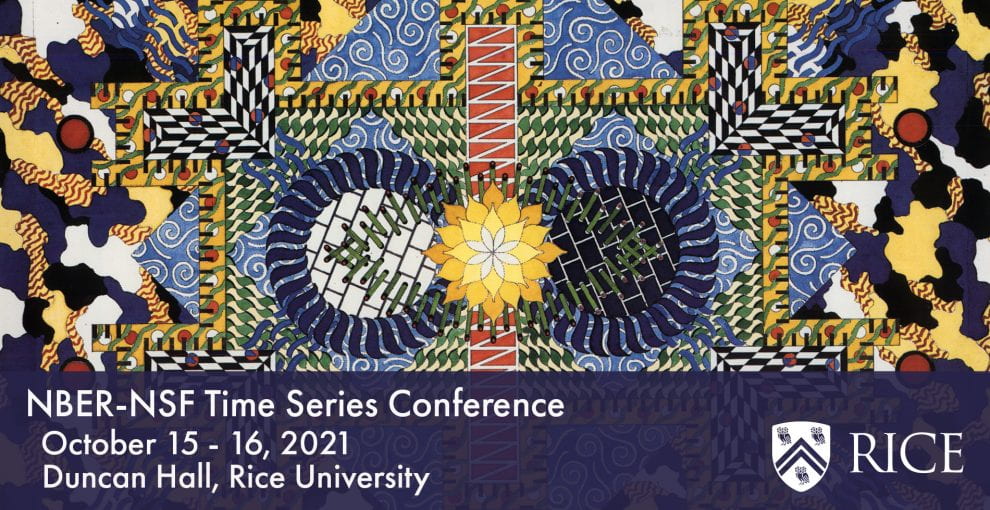 Mirko Armillotta, Postdoctoral Researcher, Department of Mathematics & Statistics and IRIDA Research Centre, University of Cyprus
Mirko Armillotta, Postdoctoral Researcher, Department of Mathematics & Statistics and IRIDA Research Centre, University of Cyprus
Mirko Armillotta’s research interests include mixed Poisson models, observation-driven models for discrete-valued processes, multivariate time-series models for network data, and econometrics. Prior to his work at the University of Cyprus, he has a visiting researcher at Lancaster University. He has a Ph.D. and M.Sc. in statistical science from the University of Bologna.
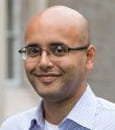 Sumanta Basu, Assistant Professor of Statistics and Data Science, Cornell University
Sumanta Basu, Assistant Professor of Statistics and Data Science, Cornell University
Sumanta Basu is broadly interested in developing statistical machine learning methods for structure learning and the prediction of complex, high-dimensional systems arising in biological and social sciences. His current research focuses on network modeling of high-dimensional time series and the detection of high-order interactions in complex biological systems using randomized tree ensembles. Basu works closely with scientists and economists on a wide range of problems, including prostate cancer progression, large-scale metabolomics, and systemic risk monitoring in financial markets.
Before joining Cornell, Basu was a postdoctoral scholar (2014-2016) in the Department of Statistics, UC Berkeley and the Biosciences Division, Lawrence Berkeley National Laboratory. He has a Ph.D. in statistics from the University of Michigan and a master’s in statistics from the Indian Statistical Institute, Kolkata.
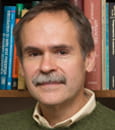
Francis Diebold, Paul F. and Warren S. Miller Professor of Economics, Professor of Finance and Statistics, University of Pennsylvania
Francis Diebold is known for his research in measurement and predictive modeling of financial markets, underlying macroeconomic fundamentals, and climate change. He has made well-known contributions to the measurement and modeling of asset-return volatility, business conditions, yield curves, and network connectedness. He has published more than 150 scientific papers and 8 books, and he is regularly ranked among globally most-cited economists.
He is founding fellow and a past president of the Society for Financial Econometrics; an NBER Faculty Research Associate; a fellow of the Econometric Society, the American Statistical Association, the Guggenheim Foundation, the Sloan Foundation, the Humboldt Foundation, and the Journal of Econometrics; a founding fellow of the International Association for Applied Econometrics and the Society for Economic Measurement; and an honorary fellow of the International Institute of Forecasters. Diebold has a Ph.D. in Economics from the University of Pennsylvania.
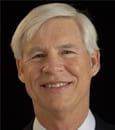 Robert Engle, Michael Armellino Professor of Management and Financial Services, Stern School of Business, New York University
Robert Engle, Michael Armellino Professor of Management and Financial Services, Stern School of Business, New York University
Before joining NYU Stern in 2000, Professor Engle was Chancellor’s Associates Professor and chair of the Department of Economics at the University of California, San Diego, and an associate professor of economics at the Massachusetts Institute of Technology.
Engle is a leading expert in time-series analysis in the analysis of financial markets. He was awarded the 2003 Nobel Prize in Economics with Clive Granger for research on the concept of autoregressive conditional heteroskedasticity (ARCH). His ARCH model and its generalizations have become indispensable tools not only for researchers but also for analysts of financial markets, who use them in asset pricing and in evaluating portfolio risk. His research has also produced such innovative statistical methods as cointegration, common features, autoregressive conditional duration (ACD), CAViaR and now dynamic conditional correlation (DCC) models.
He co-directs the NYU Stern Volatility and Risk Institute and is the co-founding president of the Society for Financial Econometrics (SoFiE), a global non-profit organization at NYU. Engle has an M.S. in physics and a Ph.D. in economics from Cornell University.
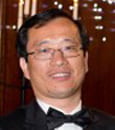 Jiti Gao, Professor & Donald Cochrane Chair of Business Economics, Professor of Econometrics & Business Statistics, Monash University
Jiti Gao, Professor & Donald Cochrane Chair of Business Economics, Professor of Econometrics & Business Statistics, Monash University
Jiti Gao builds sophisticated statistical models to analyze critical issues in climate change, energy demand, financial markets, and econometrics. He is an expert in time-series analysis, non- and semi-parametric models and methods, spatial and spatial-temporal analysis, stochastic process modeling, and the integration of high-dimensional data. Prior to joining Monash University in 2011, he was chair of economics and foundation chair of econometrics at the University of Adelaide’s School of Economics (2008-2010), and chair of statistics and head of the statistics discipline at the University of Western Australia’s School of Mathematics and Statistics (2004-2007). He is a fellow of the Australian Academy of Social Sciences and a fellow of The Journal of Econometrics. Gao has a Ph.D. in econometrics from Monash University and a Ph.D. in Mathematics from the University of Science and Technology of China (USTC).
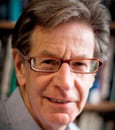 Andrew Harvey, Emeritus Professor of Econometrics, University of Cambridge
Andrew Harvey, Emeritus Professor of Econometrics, University of Cambridge
Andrew Harvey specializes in the econometric analysis of time series, state-space models, signal extraction, and volatility. He is the author of two textbooks, The Econometric Analysis of Time Series and Time Series Models, and two research monographs, Forecasting, Structural Time Series Models and the Kalman Filter (1989) and, most recently, Dynamic Models for Volatility and Heavy Tails (2013). He has published over one hundred articles in journals and edited volumes and is one of the developers of the STAMP package. He is a fellow of the Econometric Society and a fellow of the British Academy (FBA). He has an MSc in Statistics from the London School of Economics.
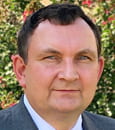 Lutz Kilian, Senior Economic Policy Adviser, Federal Reserve Bank of Dallas
Lutz Kilian, Senior Economic Policy Adviser, Federal Reserve Bank of Dallas
Lutz Kilian has been a Senior Economic Policy Adviser at the Federal Reserve Bank of Dallas since the summer of 2019. He received his Ph.D. in economics from the University of Pennsylvania in 1996 and his M.A. in development banking from American University in 1988. He joined the faculty at the University of Michigan in 1996, where he was tenured in 2002 and promoted to professor of economics in 2008. Prior to his Ph.D., he worked for the research department of the Inter-American Development Bank in Washington, D.C. From 2001-2003 he served as the research adviser to the European Central Bank in Frankfurt, Germany. His research interests include time-series econometrics, empirical macroeconomics, and energy economics. His work has appeared in leading general interest and field journals in economics and statistics. He also co-authored a textbook on Structural Vector Autoregressive Analysis with Helmut Luetkepohl.
 Daniel Kowal, Dobelman Family Assistant Professor of Statistics, Rice University
Daniel Kowal, Dobelman Family Assistant Professor of Statistics, Rice University
Daniel Kowal joined Rice University as an assistant professor in 2017. He was named the Dobelman Family Chair in 2020. That same year, he was selected for an ARO Young Investigator Award for his work on Optimal Bayesian Approximations for Targeted Prediction. Kowal is particularly known for his statistical methodology and algorithms for massive data sets with complex dependence structures, such as functional, time series, spatial data, and more recently for his Bayesian models for prediction and inference, decision theory, discrete data analysis, and scalable approximations to complex models. Through this work, Kowal has addressed complex questions in fields such as economics, public health and policy, biomedical engineering, finance, and astronomy. He has a Ph.D. and M.S. in statistics with a minor in finance from Cornell University.
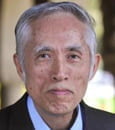 Tze Leung Lai, Ray Lyman Wilbur Professor of Statistics, Stanford University
Tze Leung Lai, Ray Lyman Wilbur Professor of Statistics, Stanford University
Tze Leung Lai has published over 300 papers in biostatistics, econometrics, quantitative finance and risk management. His research involves sequential experimentation, adaptive design and control, stochastic optimization, time-series analysis and forecasting, change-point detection, hidden Markov models and particle filters, empirical Bayes modeling, multivariate survival analysis, probability theory and stochastic processes. He is director of the Financial and Risk Modeling Institute (FARM), co-director of the Biostatistics Core of the Stanford Cancer Institute, and co-director of the Center for Innovative Study Design in the Stanford School of Medicine. He has a Ph.D. in mathematical statistics from Columbia University.
 Hedibert Lopes, Professor of Statistics and Econometrics, INSPER Institute of Education and Research
Hedibert Lopes, Professor of Statistics and Econometrics, INSPER Institute of Education and Research
Hedibert Lopes’ expertise spans several areas of statistics and econometrics with particular emphasis on computational methods, Bayesian models for prediction and inference, and time-series analysis. He has published nine books and over 70 scientific papers and technical reports. Prior to joining INSPER in 2013, he worked for 10 years at the University of Chicago as an assistant and associate professor of econometrics and statistics at the Booth School of Business. He was a professor of statistics at the Federal University of Fluminense (UFF) and at the Federal University of Rio de Janeiro (UFRJ) from 1992-1996 and 1996-2003, respectively. He has a Ph.D. in statistics and decision sciences from Duke University and an MSc. in statistics from UFRJ.
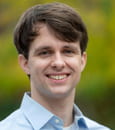 Mikkel Plagborg-Moller, Assistant Professor of Economics, Princeton University
Mikkel Plagborg-Moller, Assistant Professor of Economics, Princeton University
An expert in econometrics and macroeconomics, Mikkel Plagborg-Moller joined Princeton in 2017. He was awarded the William G. Bowen Presidential University Preceptorship for economics in 2020. He was a visiting scholar at the Federal Reserve Bank of Philadelphia and at NYU’s Department of Economics and completed his postdoctoral fellowship at the Department of Economics, Harvard University. Plagborg-Moller has a Ph.D. in economics from Harvard.
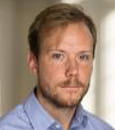 Andrew Martinez, Economist, Office of Macroeconomic Analysis, U.S. Department of Treasury
Andrew Martinez, Economist, Office of Macroeconomic Analysis, U.S. Department of Treasury
Andrew Martinez joined the U.S. Treasury’s Office of Macroeconomic Analysis in 2019. His research interests include time-series, forecasting, applied macroeconomics, and climate econometrics. His current research focuses on forecasting, forecast evaluation, and understanding the economic impacts of climate change. He has an M.A. in international economic policy from The George Washington University and an MPhil. and Ph.D. in economics from the University of Oxford where he was a James Martin Fellow at the Institute for New Economic Thinking at the Oxford Martin School, and a member of Climate Econometrics at Nuffield College.
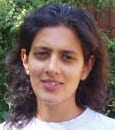 Suhasini Subba Rao, Professor of Statistics, Texas A&M University
Suhasini Subba Rao, Professor of Statistics, Texas A&M University
Suhasini Subba Rao’s investigations combine modern theories in mathematical probability, advanced statistical inference, and spatiotemporal and high dimensional time-series analysis with applications in geosciences, finance, and climate change. She joined the faculty at Texas A&M University in 2006, received tenure in 2010, and was promoted to full professor in 2016. After completing a postdoctoral fellowship at the University of Heidelberg in Germany, she was a lecturer at the University of Bristol. She has a Ph.D. in statistics from the University of Bristol and an MMaths from the University of Manchester.
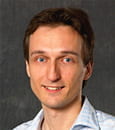 Viktor Todorov, Harold H. Hines Jr. Professor of Risk Management, Northwestern University
Viktor Todorov, Harold H. Hines Jr. Professor of Risk Management, Northwestern University
Viktor Todorov joined the Kellogg School of Management at Northwestern University in 2007 as an assistant professor of finance. He received tenure in 2011 and was promoted to full professor in 2015. Todorov is an expert in the areas of theoretical and empirical asset pricing, econometrics, and applied probability and has published extensively in these fields. His recent work focuses on the robust estimation of asset pricing models using high-frequency financial data as well as the development and application of parametric and nonparametric methods of inference for studying risks and risk premia using derivatives markets data. Todorov is a fellow of the Society for Financial Econometrics and the Journal of Econometrics. He has a Ph.D. in economics from Duke University.
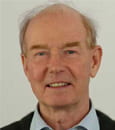 Granville Tunnicliffe-Wilson, Reader Emeritus of Mathematics and Statistics, Lancaster University
Granville Tunnicliffe-Wilson, Reader Emeritus of Mathematics and Statistics, Lancaster University
Granville Tunnicliffe-Wilson’s long-term research at Lancaster University has focused on methodology and software for time-series modeling and prediction. His distinguished record has combined applied mathematics and statistical analysis with computing technologies to advance the fields of geophysics, climatology, medicine, economics, finance, and engineering. Tunnicliffe-Wilson’s research in multivariate time-series introduces the ideas of graphical modeling to determine more efficient representations and developing further the (C)ZAR models and their applications. He is co-author of the book Models for Dependent Time Series: Monographs on Statistics and Applied Probability, published in 2015 by CRC Press. He has a B.A. in mathematics and a Ph.D. in statistics from the University of Cambridge.
 Di Wang, Postdoctoral Principal Researcher, Booth School of Business, University of Chicago
Di Wang, Postdoctoral Principal Researcher, Booth School of Business, University of Chicago
Di Wang has been a postdoctoral principal researcher at the University of Chicago’s Booth School of Business since 2020. Prior to his work at Chicago Booth, Di Wang received his Ph.D. in statistics from the University of Hong Kong. His research interests include high-dimensional statistical inference, time series analysis, tensor data analysis, robust statistics and optimization.
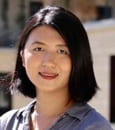 Ruoxuan Xiong, Assistant Professor of Quantitative Theory & Methods, Emory University
Ruoxuan Xiong, Assistant Professor of Quantitative Theory & Methods, Emory University
Ruoxuan Xiong joined Emory University’s Department of Quantitative Theory & Methods as an assistant professor this fall after completing a postdoctoral fellowship at Stanford University’s Stanford Graduate School of Business. Her investigations involve causal inference, experimental design, factor modeling, and statistical learning with applications in finance and healthcare. She has a Ph.D. in management science and engineering from Stanford.
 Chunming Zhang, Professor of Statistics, University of Wisconsin
Chunming Zhang, Professor of Statistics, University of Wisconsin
Chunming Zhang has been a faculty member at the University of Wisconsin’s Department of Statistics since 2000. She received tenure in 2005 and was promoted to full professor in 2010. Her research interests include machine learning, data mining, multiple testing and large-scale simultaneous inference, non- and semi-parametric estimation and inference, and functional and longitudinal data analysis. The investigations have involved a wide range of projects in statistical methods for finance, econometrics, neuroinformatics, and bioinformatics. She has a Ph.D. in statistics from the University of North Carolina-Chapel Hill and an M.S. in computational mathematics from Academia Sinica in Beijing, China.
